The Editorial Advisory Board is a select group of distinguished bioethicists and physicians who have a specialty in bioethics.
Their primary responsibility is to identify the most pressing ethical issues in clinical practice and recommend feature articles for The Physician’s Index.
Their expert recommendations help practicing physicians make difficult decisions regarding current ethical concerns such as end-of-life care, rationing, and error reporting.
- The nine members have written over 900 journal articles and book chapters
- Six members direct university or regional programs in bioethics or clinical ethics
- Four members hold endowed chairs at their respective institutions
James L. Bernat, M.D.
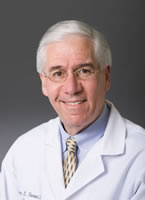 Louis and Ruth Frank Professor of Neuroscience, Dartmouth Medical School
Louis and Ruth Frank Professor of Neuroscience, Dartmouth Medical School
Professor of Neurology and Medicine, Dartmouth Medical School
Director of the Program in Clinical Ethics, Dartmouth-Hitchcock Medical Center
James L. Bernat, M.D., earned his medical degree from Cornell University Medical College in 1973 and joined the Dartmouth Medical School faculty in 1976. He has held the rank of Professor of Medicine and Neurology since 1989 and serves as Director of the Program in Clinical Ethics at the Dartmouth-Hitchcock Medical Center. Dr. Bernat served for 28 years on the American Academy of Neurology Ethics, Law and Humanities Committee with 10 years as chairman. He is a fellow of the American College of Physicians, the American Academy of Neurology, and The Hastings Center. Dr. Bernat has written over 200 journal articles and chapters on topics in neurology and clinical ethics. He is the author of Ethical Issues in Neurology (3rd ed., Lippincott Williams & Wilkins, 2008) and coeditor of Palliative Care in Neurology (Oxford, 2004). He testified before the United States Senate Health Committee on the vegetative state and was a consultant on brain death to the Vatican Pontifical Academy of Sciences and the Pontifical Academy for Life. He chaired the U.S. Department of Health and Human Services Health Resources and Services Administration Division of Transplantation panel on determining death in organ donors and serves on the World Health Organization committee on standards for death determination. In 2011, Dr. Bernat received the Presidential Award from the American Academy of Neurology for lifetime service to American neurology.
Larry R. Churchill, Ph.D.
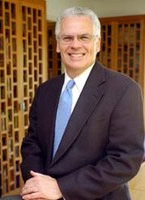 Professor of Medicine, Vanderbilt University School of Medicine
Professor of Medicine, Vanderbilt University School of Medicine
Ann Geddes Stahlman Professor of Medical Ethics, Vanderbilt University School of Medicine
Professor, Graduate Department of Religion, Vanderbilt University
Professor, Vanderbilt Divinity School, Vanderbilt University
Professor, Department of Philosophy, Vanderbilt University
Larry R. Churchill, Ph.D., joined the Vanderbilt faculty in 2002 as the Ann Geddes Stahlman Chair of Medical Ethics. Dr. Churchill has published widely in medical ethics, including research with human subjects, end-of-life decision making, and social justice and the ethics of U.S. health policy. His major works include Professional Ethics and Primary Care Medicine (Duke, 1986), Rationing Health Care in America (Notre Dame, 1987), Self-Interest and Universal Health Care (Harvard, 1994), Ethical Dimensions of Health Policy (Oxford, 2002), and Healers: Extraordinary Clinicians at Work (Oxford, 2011). His work in ethics and health policy was the basis for his election to the Institute of Medicine, National Academy of Sciences in 1991. During 2003-2004, he was a member of the Institute of Medicine’s Committee on the Use of Alternative and Complementary Medicine, and was the chief author of the chapter on ethics in the Committee Report. From 1995-2005, he worked with the National Human Genome Research Institute on informed consent and gene transfer research. Dr. Churchill is also a fellow of The Hastings Center. His current research is focused on the role of religion/spirituality in patient care and an empirical investigation of the qualities that promote “healing relationships” in medicine.
Arthur R. Derse, M.D., J.D.
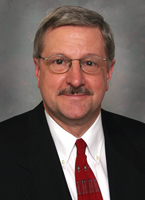 Julia and David Uihlein Professor of Medical Humanities, Medical College of Wisconsin
Julia and David Uihlein Professor of Medical Humanities, Medical College of Wisconsin
Professor of Bioethics and Emergency Medicine, Medical College of Wisconsin
Director, Center for Bioethics and Medical Humanities, Medical College of Wisconsin
Director, Medical and Legal Affairs, Medical College of Wisconsin
Arthur R. Derse, M.D., J.D., is the Director of the Center for Bioethics and Medical Humanities, and serves as Director for Medical and Legal Affairs at the Medical College of Wisconsin, where he is also Professor of Emergency Medicine. Dr. Derse is a past president of the American Society for Bioethics and Humanities. He is chair of the National Ethics Committee of the Veterans Health Administration and is a member and past chair of the Ethics Committee of the American College of Emergency Physicians. He served as Senior Consultant for Academic Affairs at the American Medical Association’s Institute for Ethics and as a member of the American Bar Association’s Commission on Law and Aging. He received the American Society for Bioethics and Humanities 2008 Distinguished Service Award. He is coauthor of the Code of Ethics of the American College of Emergency Physicians and Practical Ethics for Students, Interns and Residents: A Short Reference Manual (3rd ed., University Publishing Group, 2008). His publications and research focus on emergency medicine and ethics, confidentiality, informed consent, end-of-life decision making, decision-making capacity, the doctor-patient relationship, and the internet in academic bioethics and medicine.
Faith T. Fitzgerald, M.D.
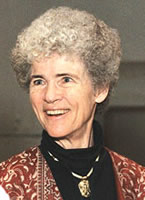 Professor of Internal Medicine, University of California Davis, Sacramento
Professor of Internal Medicine, University of California Davis, Sacramento
Associate Dean for Humanities and Bioethics, University of California Davis, Sacramento
Faith T. Fitzgerald, M.D., is Professor of Internal Medicine and Associate Dean of Humanities and Bioethics at the University of California Davis, Sacramento. She received her M.D. from the University of California, San Francisco, in 1969, was Board Certified in Internal Medicine in 1973, and has been teaching medical students and residents ever since. She has written on a wide variety of topics in medicine, including protean disease states, medical education, physical diagnosis, and bioethics. Her publications include contributions to the Annals of Internal Medicine, New England Journal of Medicine, Health Care Analysis, Wiener Klinische Wochenschrift, and the American Journal of Medicine. Dr. Fitzgerald is a Master of the American College of Physicians, current Regent of the American College of Physicians, and sees patients in both hospital and clinic.
Lance K. Stell, Ph.D.
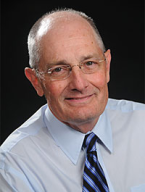 Clinical Professor of Medicine, University of North Carolina, Chapel Hill, School of Medicine
Clinical Professor of Medicine, University of North Carolina, Chapel Hill, School of Medicine
Professor Emeritus, Department of Internal Medicine, Carolinas Medical Center, Charlotte
Samuel E. and Mary West Thatcher Professor of Philosophy and Past Director of Medical Humanities, Davidson College
Lance K. Stell, Ph.D., is the Samuel E. and Mary West Thatcher Professor of Philosophy and Past Director of Medical Humanities at Davidson College. He teaches ethics, philosophy of law, and clinical ethics. He held a faculty appointment in the Department of Internal Medicine at Carolinas Medical Center, a teaching hospital in Charlotte with which Davidson College has formal institutional ties. He is a Clinical Professor of Medicine at the University of North Carolina at Chapel Hill School of Medicine. Dr. Stell serves as a consultant to hospitals and professional medical associations, and serves on the Committee on Ethical and Judicial Affairs of the North Carolina Medical Society and on the Grievance Committee of the 26th Judicial District of North Carolina. He publishes in medical ethics, ethics, and the philosophy of law.
Thomas Wright, M.D.
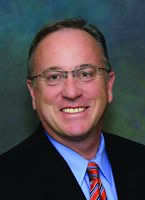 Chief Medical Officer and Senior Vice President of Medical Affairs, Rosecrance Health Network, Rockford, Illinois
Chief Medical Officer and Senior Vice President of Medical Affairs, Rosecrance Health Network, Rockford, Illinois
Clinical Assistant Professor of Psychiatry, University of Illinois College of Medicine, Rockford, Illinois
Thomas Wright, M.D., is Chief Medical Officer and Senior Vice President of Medical Affairs for the Rosecrance Health Network in Rockford, Illinois. He oversees all medical operations for the Rosecrance Health Network and the Rosecrance Griffin Williamson Adolescent program. He specializes in working with adolescents who have a coexisting or secondary diagnosis in addition to an addiction disorder. In 2015, he received the Clinician of the Year Award from Addiction Professional for clinical excellence. He has more than 25 years of experience in the field. Dr. Wright is certified as a Child and Adolescent Psychiatrist by the American Board of Psychiatry and Neurology and in addiction medicine by the American Society of Addiction Medicine. He served on the faculty at Northwestern Medical College in Chicago and at the University of Illinois College of Medicine at Chicago and Rockford. Dr. Wright is a regular conference presenter and has been recognized as a medical educator and leader in the field of Child and Adolescent Psychiatry. In 2015, he received the Clinician of the Year Award from Addiction Professional for clinical excellence.
Ernlé Young, Ph.D.
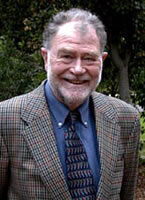 Professor Emeritus of Medicine (Biomedical Ethics), Stanford University School of Medicine
Professor Emeritus of Medicine (Biomedical Ethics), Stanford University School of Medicine
Emeritus Codirector and Cofounder of the Stanford University Center for Biomedical Ethics, Stanford University School of Medicine
Chief Officer for the Protection of Research Participants, NASA-Ames Research Center, Mountain View, California
Ernlé Young, Ph.D., is Emeritus codirector and cofounder of the Stanford University Center for Biomedical Ethics and Professor Emeritus of Medicine at the Stanford University School of Medicine. Dr. Young earned his Ph.D. at Southern Methodist University in theological ethics in 1971. After returning to South Africa, the land of his birth, he became actively involved in working against the apartheid system. In 1973, after learning he was to be placed under house arrest, he left the country. Stanford recruited him, and in 1974 he began teaching biomedical ethics in the Stanford University School of Medicine and developing a Chaplaincy Department in the Stanford University Medical Center. In 1989, Dr. Young cofounded the Stanford University Center for Biomedical Ethics. He has been a force in bioethics, chairing the ethics committee at Stanford University Hospital and the Veterans Administration Palo Alto Health Care System. In 1984, he was a visiting fellow at Green Templeton College, Oxford. Dr. Young is coauthor of A Time to be Born, A Time to Die: Conflicts and Ethics in an Intensive Care Nursery (Addison-Wesley, 1986) and author of Alpha and Omega: Ethics at the Frontiers of Life and Death (Addison-Wesley, 1990). He coauthored and edited Ethics and Perinatology: Issues and Perspectives (Oxford, 1994).
Former Board Members
Lawrence J. Schneiderman, M.D.
Former Chair of the Editorial Advisory Board
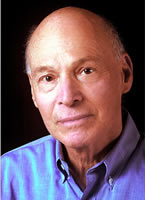 Professor Emeritus, Departments of Family Medicine and Public Health, and Medicine, University of California San Diego, School of Medicine
Professor Emeritus, Departments of Family Medicine and Public Health, and Medicine, University of California San Diego, School of Medicine
Lawrence J. Schneiderman, M.D., was Professor Emeritus in the Departments of Family Medicine and Public Health, and Medicine, at the University of California San Diego School of Medicine and had a distinguished career in medicine and ethics. Founding cochair of the University of California, San Diego Medical Center Ethics Committee, he was a recipient of the Pellegrino Medal in medical ethics. Dr. Schneiderman wrote more than 170 medical and scientific publications, including The Practice of Preventive Health Care (Addison Wesley, 1981), Embracing Our Mortality: Hard Choices in an Age of Medical Miracles (Oxford, 2008), and Wrong Medicine: Doctors, Patients and Futile Treatment (with Nancy S. Jecker, Ph.D.) (Johns Hopkins, 2011). Dr. Schneiderman was a fellow in the American College of Physicians. He conducted empirical research on end-of-life care, and provided ethics consultations and invited talks for a variety of audiences in medicine, law, and philosophy. Additionally, he was a published novelist and short-story writer, and an award-winning playwright.
Tristram Engelhardt, Jr., Ph.D., M.D.
 Professor of Philosophy, Department of Philosophy, Rice University
Professor of Philosophy, Department of Philosophy, Rice University
Professor Emeritus of Medicine, Baylor College of Medicine
Tristram Engelhardt, Jr., Ph.D., M.D., was the senior editor of the Journal of Medicine and Philosophy and the journal Christian Bioethics. He was also senior editor of the Philosophy and Medicine book series with over 100 volumes in print and the book series Philosophical Studies in Contemporary Culture. Dr. Engelhardt authored over 360 articles and chapters of books in addition to numerous book reviews and other publications. There have been over 150 reprintings or translations of his publications. He also coedited more than 30 volumes and lectured widely throughout the world. His final works included The Foundations of Christian Bioethics (Scrivener, 2000), Global Bioethics: The Collapse of Consensus (edited volume, Scrivener, 2006), The Philosophy of Medicine: Framing the Field (edited volume, Springer, 2011), and The Foundations of Bioethics (2nd ed., Oxford, 1996). His research interests included explanatory models in medicine, the development of modern concepts of health and disease, and rights and responsibilities in health care. Dr. Engelhardt received the American Society for Bioethics and Humanities 2013 Lifetime Achievement Award.
